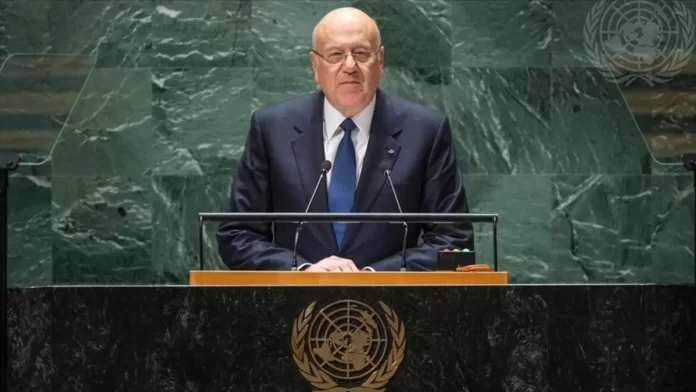The escalating conflict between Israel and Hezbollah has reached a critical point, with Lebanese Prime Minister Najib Mikati making an emotional appeal to the UN Security Council. As Israel’s aerial bombardment continues to rain down on Lebanese civilians, the death toll has surged to over 620 lives in just three days. In a plea for urgent intervention, Mikati emphasized the severe humanitarian impact of the strikes, labeling them a direct violation of Lebanon’s sovereignty and spreading “terror and fear” across the nation.
UN Security Council Responds to Lebanon’s Crisis
The urgent meeting was convened by France, with international diplomats gathering to assess the dire situation on the ground. France’s Foreign Minister, Jean-Noel Barrot, announced a collaborative effort with the United States, aiming to broker a 21-day ceasefire. This temporary truce would provide a window for negotiation between Israel and Hezbollah, as both nations edge closer to a full-scale war. Deputy US Ambassador Robert Wood expressed optimism, noting that this pause could prevent a repeat of the devastating 2006 Lebanon War, which claimed the lives of thousands.
Despite the international push for peace, tensions remain dangerously high. Israeli Prime Minister Benjamin Netanyahu is set to address the UN, defending his government’s military actions amid widespread criticism. At the same time, Israel is also embroiled in a separate conflict with Gaza, adding another layer of complexity to the Middle Eastern crisis. As the one-year anniversary of Israel’s war on Gaza approaches, Netanyahu’s upcoming address is likely to justify continued aggression, further fueling global concern.
Iran Signals Support for Hezbollah
Amid the escalating violence, Iran has taken a firm stance, with Iranian Foreign Minister Abbas Araghchi reaffirming Tehran’s unwavering support for Hezbollah. He warned that Iran would not stand by as Lebanon faces mounting attacks, signaling potential regional spillover if the conflict is not contained.
This alarming development has intensified fears of a broader war in the Middle East, with world powers scrambling to prevent further bloodshed.
Humanitarian Crisis Deepens in Lebanon
The humanitarian cost of the conflict is spiraling, with the UN voicing deep concern over the plight of Lebanese civilians. UN Secretary-General Antonio Guterres described the ongoing violence as the “bloodiest day in Lebanon in a generation,” stressing the urgent need for de-escalation. Martin Griffiths, Under-Secretary-General for Humanitarian Affairs, echoed these sentiments, warning that prolonged fighting would lead to catastrophic consequences for the region.
International organizations are rallying to provide aid, but access to vulnerable areas remains limited due to the intensity of the airstrikes. As the world watches, the fate of Lebanon’s civilians hangs in the balance.
Path Forward: Can Diplomacy Win?
As the death toll continues to rise, there is a growing chorus of calls for diplomacy. Mikati’s plea for UN action reflects Lebanon’s desperation to avert further devastation. However, with Iran backing Hezbollah and Israel resolute in its military operations, finding common ground appears increasingly difficult.
The international community is left to grapple with a potential turning point in the region’s history. If the proposed ceasefire can hold, there may be hope for a diplomatic solution. But if peace talks collapse, Lebanon could face an even darker chapter, one marked by continued violence and suffering.
In the coming days, global attention will focus on the UN’s ability to broker peace and prevent the Middle East from descending further into chaos.
Must Read: Israel-Lebanon Conflict Escalates: Today’s Live Updates and Analysis






